
The AIgorythm project

Playwright and actor
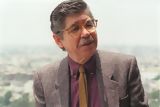
Novelist

Writer and poet

Volleyball player

Italian-Peruvian naturalist and geographer

Singer and percussionist

Last Inca emperor

Politician, former prime Minister

Journalist and TV host
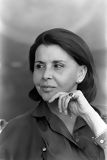
Poet

Inca warrior

Actor and comedian

Biophysicist

Poet

Doctor and researcher
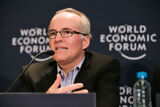
Businessman, Interbank group

Journalist and writer
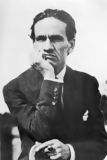
Poet and writer
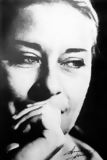
Singer and songwriter
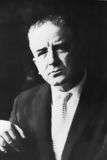
Writer

Film director, Berlin Golden Bear winner

Football player
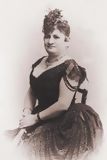
Writer and journalist
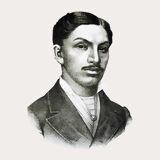
Doctor and scientist

Photograph

Chess player

Industrialist
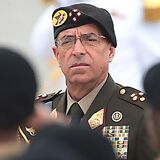
Former general

Specialist in public health

Actress and singer

Afro-Peruvian music singer

Mathematician and engineer

Indigenous chronicler

Neurologist and anthropologist

Painter

Football player
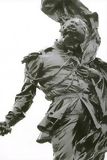
National hero, military leader

Intellectual and reformer

Chef and entrepreneur

Fashion designer

Singer-songwriter

TV presenter

Marathon runner

Indigenous Peruvian chronicler

Theologian

Former national team captain

Economist and former health minister

Inca princess

Writer and television host

Folk musician

Poet and guerrilla
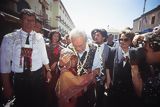
Former UN secretary-general

Chef, known for fusion cuisine

Football player

Peruvian aviation pioneer

Poet and artist
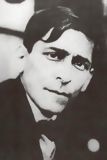
Marxist philosopher and writer

Industrialist and businessman
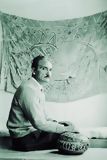
Novelist and ethnologist

Painter and muralist

Opera tenor

Fashion designer

Cardinal of Lima

Peruvian tennis player

Football coach

Leader of the indigenous rebellion
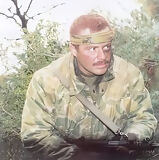
Military hero

Latin singer
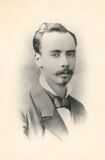
War of the Pacific hero

The youngest mother in history

Politician
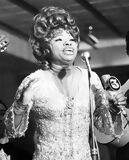
Creole music singer

Tennis player
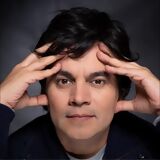
Musician

Writer and politician

Politician and founder of the Christian Democratic Party

Founder of Sodalitium Christianae Vitae

Archaeologist and anthropologist
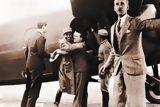
Military leader and politician

Television host
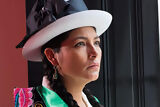
Actress and singer
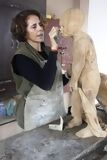
Contemporary sculptor
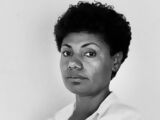
Women’s rights activist

Beauty queen

Astrophysicist

Heroine of independence
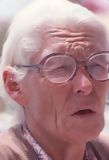
Mathematician and archaeologist

Historian and anthropologist
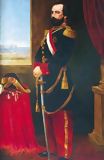
Military figure and historical figure
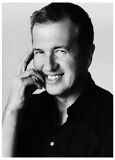
Fashion photographer
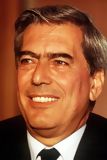
Writer, Nobel Prize in Literature, Politician

Revolutionary leader
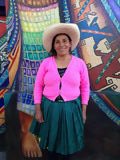
Environmental activist

Leader of the indigenous rebellion

Musician from Gaia band
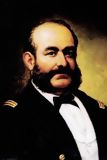
War hero
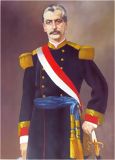
Military leader and politician

Chef, known for Nikkei cuisine

Volleyball coach and former player

Environmental activist

Television personality

Writer

Football player

Epidemiologist and former health Minister

Inventor and aerospace pioneer

Soldier and inventor
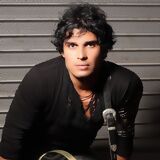
Rock singer

Chef and co-owner of Central restaurant

Painter

Football player

TV presenter and actress
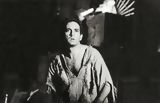
Actor
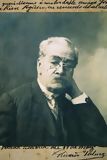
Writer and historian

Journalist and lawyer

Archaeologist, founder of Caral site
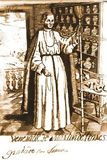
Monk and Saint
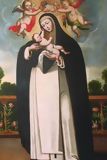
Saint, patron of Latin America

Physicist and engineer

World champion surfer

Actress

Oncologist
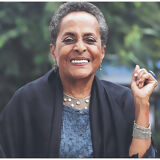
Singer, Latin Grammy winner

Former mayor of Lima

Singer

Actress

Former football player

Painter
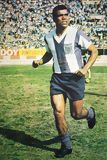
Former football player

Painter

Inca leader

Archbishop, saint
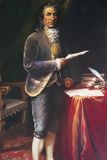
Leader of the indigenous rebellion

Revolutionary indigenous leader

Diplomat and intellectual

Sculptor and painter
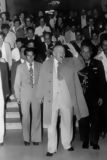
Political leader, founder of APRA

Lawyer and Former prime minister

Chef of Central restaurant
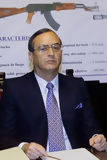
Former head of secret services

Popular singer

Fashion designer

Exotic music singer
Carlos Monge Medrano (1884-1970) was a renowned Peruvian physician and physiologist who made groundbreaking contributions to high-altitude medicine. He is best known for his research on the effects of hypoxia (low oxygen levels) on the human body, particularly in people living at high altitudes in The Andes. Monge Medrano's work helped establish the field of high-altitude physiology, and his findings are still influential in understanding how humans adapt to extreme environments.
Born in Arequipa, Peru, in 1884, Monge Medrano pursued his medical studies at the National University of San Marcos in Lima. He quickly became interested in the physiological challenges faced by people living in the high-altitude regions of The Andes. His early research focused on understanding how chronic exposure to low oxygen levels affected the cardiovascular and respiratory systems, a topic that had significant implications for public health in Peru's high-altitude regions.
Monge Medrano’s most notable discovery was the identification of "Chronic Mountain Sickness" (CMS), also known as Monge’s Disease. This condition affects long-term residents of high altitudes, leading to symptoms such as headaches, fatigue, and cyanosis (a bluish discoloration of the skin due to lack of oxygen). Monge was the first to document the syndrome and propose theories on its causes, linking it to prolonged hypoxia and maladaptation to high-altitude living.
His research was groundbreaking because it shifted the focus from acute altitude sickness, experienced by travelers, to chronic conditions affecting permanent high-altitude residents. His work laid the foundation for further research into how humans adapt to and survive in extreme environmental conditions.
Carlos Monge Medrano’s contributions extended beyond medical research. His studies influenced public health policies in Peru, particularly in regions where high-altitude living posed unique health challenges. His work continues to be referenced in modern medicine, especially in fields related to high-altitude physiology, aviation, and space medicine.
Monge Medrano's legacy is one of innovation and dedication, as he sought to improve the lives of people living in challenging environments. His contributions to medical science remain a vital part of understanding human adaptation to extreme conditions.
Carlos Monge Medrano was a trailblazer in the field of high-altitude medicine, whose discoveries have had a lasting impact on both the scientific community and the populations he sought to help. His work on chronic mountain sickness remains a cornerstone of high-altitude research, and his legacy continues to inspire new generations of medical researchers and professionals.